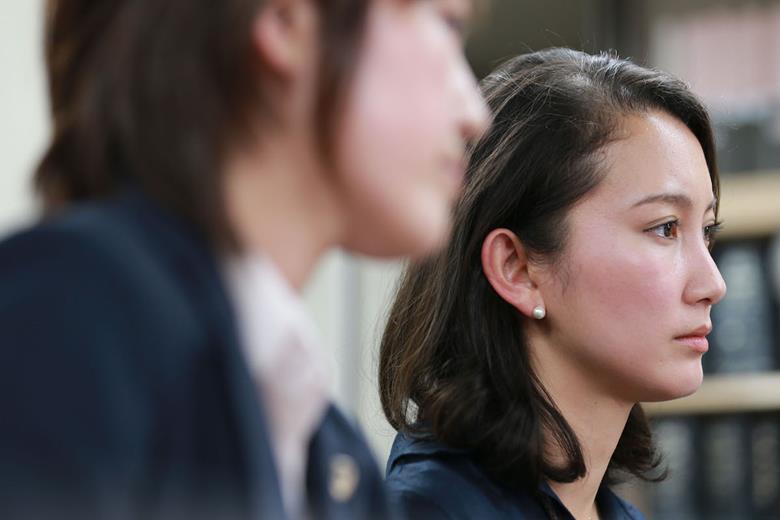In 2015, young Japanese journalist Shiori Ito met an older, highly respected writer to discuss the possibility of her getting a job in Washington. He asks her to meet him for dinner; she is surprised that no one else joins them. He has a close relationship with Prime Minister Abe, the country’s leader, and a stellar reputation. She has one drink at dinner and immediately starts to feel Ill. The man says he will take her to her train station, instead, he takes her to his hotel. The cab driver and the hotel doorman both later agree that the man has to drag her, fighting, out of the cab into the hotel.
Evidence of this altercation is also backed up by CCTV hotel footage showing the struggle in the cab and her barely being able to walk as she is dragged along. When the doorman reports it to hotel management, he is told to do nothing. She awakes to the man on top of her. She runs to the shower, and he again grabs her. When she comes out, she is bruised and bleeding. She files a police report, and after some weeks, and only after the hotel film footage is located, plans are made to arrest him. At the last minute, the Chief of Police cancels the arrest and says nothing more can be done.
Under Japan’s 113-year-old rape laws, because no massive injuries were inflicted or threats had taken place, they don’t consider it rape. (Of course, if someone is unconscious after being drugged, it’s not necessary to threaten them.) Shiori spends the following years trying to get justice. This documentary does an excellent job of following her rocky road against antiquated laws, high-placed “protection,” and a real “blame the victim” culture.
She never delves into self-pity. Her trials, both literal and figurative, will leave you truly inspired. This film is a well-made documentary that is very timely in the current “me too” era. I don’t think enough can be said about this genuine problem that so many face daily. No one will have justice until everyone has justice. Ms. Ito directs her own story with skill and professionalism.
